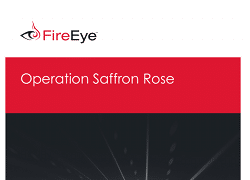The New York Times claims that the U.S. National Security Agency used intelligence gleaned from a clandestine operation to compromise North Korea’s cyber warfare unit to pin the blame for the Sony Pictures Entertainment hack on the reclusive Communist country. According to the story by David Sanger and Martin Fackler, the Obama Administration’s decision to quickly blame the hack on the DPRK grew out of a four year-old National Security Agency (NSA) program that compromise Chinese networks that connect North Korea to the outside world. The classified NSA program eventually placed malware that could track the internal workings of the computers and networks used by the North’s hackers and under the control of the Reconnaissance General Bureau, the North Korean intelligence unit, and Bureau 121, the North’s hacking unit, which mostly operates out of China. It has long been recognized that North Korea, which lacks a mature information technology infrastructure, does much of […]
website defacement
New Clues In Sony Hack Point To Insiders, Away from DPRK
A strong counter-narrative to the official account of the hacking of Sony Pictures Entertainment has emerged in recent days, with the visage of the petulant North Korean dictator, Kim Jong Un, replaced by another, more familiar face: former Sony Pictures employees angry over their firing during a recent reorganization at the company. Researchers from the security firm Norse allege that their investigation of the hack of Sony has uncovered evidence that leads, decisively, away from North Korea as the source of the attack. Instead, the company alleges that a group of six individuals is behind the hack, at least one a former Sony Pictures Entertainment employee who worked in a technical role and had extensive knowledge of the company’s network and operations. [Read Security Ledger coverage of the hack of Sony Pictures Entertainment.] If true, the allegations by Norse deal a serious blow to the government’s account of the incident, which placed the blame squarely on […]
This Week In Security: Poking Holes In Two Factor Authentication
It was another busy week in the security world. There was big news on the legal front, as The U.S. Supreme Court took steps to protect the data stored on mobile devices from warrantless searches by police. (That’s good news.) But the week also plenty of concerning stories about the security of data stored on mobile phones, tablets and the like. One of the stories that gained a lot of attention was DUO Security’s report on a flaw in PayPal’s two factor authentication feature that could expose the accounts of security-conscious PayPal users. As The Security Ledger reported, DUO researcher Zach Lanier discovered a flaw in mobile APIs published by PayPal that would allow anyone with a valid PayPal user name and password to sidestep two-factor authentication when accessing PayPal accounts that had that option enabled. After DUO went public with information on the flaw, PayPal disabled two factor authentication […]
FireEye Report: Iranian Hacker Group Becoming More Sophisticated
A report from the security firm FireEye claims that hacking crews based in Iran have become more sophisticated in recent years. They are now linked to malicious software campaigns targeting western corporations and domestic actors who attempt to circumvent Internet filters put in place by the ruling regime. The report, dubbed “Operation Saffron Rose,”(PDF) was released on Tuesday. In a blog post accompanying the research, FireEye researchers say that it has identified a group of hackers it is calling the “Ajax Security Team” that appears to have emerged out of Iranian hacker forums such as Ashiyane and Shabgard. Once limited to website defacements, the Ajax team has graduated to malware-based espionage and other techniques associated with “advanced persistent threat” (APT) style actors, FireEye said. The researchers claim that the group has been observed using social engineering techniques to implant custom malware on victims’ computers. The group’s objectives seem to align with those […]
Messy And Loud Hack In South Korea Doesn’t Look State Sponsored
A researcher who has studied the malicious software used in the attacks on media outlets and banks in South Korea this week said the attacks were coordinated, but messy and loud, without many of the hallmarks of a state sponsored hacking operation. Richard Henderson, a Security Strategist at Fortilabs at Fortinet Inc. said that the malware used in the attack was programmed to begin operating at 2:00pm local time, suggesting that those behind it had planned their operation for weeks or months before launching it. Still, Henderson said many details of the attack make it dissimilar from so-called “advanced persistent threat” or APT-style hacks that are carried out by foreign governments or groups working on their behalf. Henderson said that Fortinet analysts first obtained a copy of the malware on March 19, a day before the attacks. Researchers there had already identified the “time bomb” hidden in the code, which was […]




